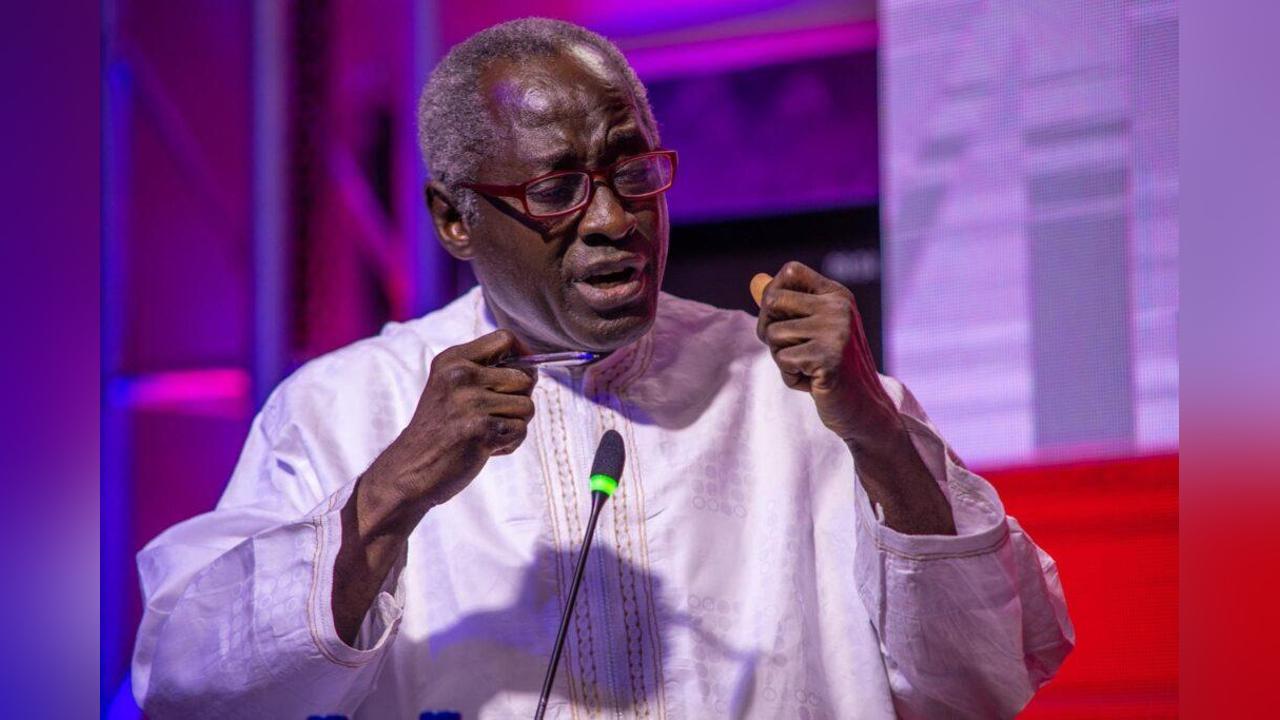Africa-Press – Gambia. In a press conference held on Wednesday, Hon. Halifa Sallah, Party Leader of the People’s Democratic Organisation for Independence and Socialism (PDOIS), strongly criticized the National Assembly for rejecting the 2024 draft constitution. He argued that the legislature missed a critical opportunity to demonstrate leadership and engage the public in a meaningful constitutional review process.
Sallah noted that although the draft was prepared by the executive, the National Assembly had a duty to compensate for the lack of public consultation by initiating one of its own.
“2024 (draft) was prepared by the executive, but once they bring it to the National Assembly, that’s where it stops. They have no authority to impose on anybody so that it will pass to become a law. So if the executive fails to consult, it was now the opportunity of the National Assembly to show the executive that what they failed to do, the National Assembly will do. That’s where the national assembly should have enhanced its image and integrity and clout,” Hon. Sallah said.
Hon. Sallah emphasized that the second reading of the bill was the ideal moment to raise concerns about the process and the lack of consultation.
“Anything could have been said at that time; accuse the executive of whatever you wish. But then, to show that, let’s proceed to the important stage of doing our work for the Gambian people, and the constitution says that from the second reading, if they allowed it to pass, they will go to the committee stage. And in that committee stage, this is where the scrutiny should have started,” he said.
He further explained that allowing the bill to advance to the committee stage would have opened the door for nationwide participation and scrutiny.
“Just like I am analyzing now, of course, we would have analyzed the whole Constitution and sent it to them, as we did in 1997. is our duty. Thinkers would have done it, and political parties would have done it. Religious leaders would have done it. So scrutiny would have been exercised, and then they would have prepared a report on the opinions of all of us on the content of the Constitution,” he said.
According to Sallah, the process would then move to the consideration stage, where members of the Assembly would examine and vote on the draft clause by clause.
“They will scrutinize and vote, clause by clause, scrutinize and vote up to the end, and then they vote, and the three-quarters majority accepts. What is left is taken to the IEC to prepare for a referendum within six months, then the people will be consulted, and the debate will still continue. And from that debate, we would have reached a national consensus. If Gambians are really Gambians, if the nation really belongs to us, if each of us is interested in having a constitution that is fit for purpose, then why should we be divided on its content? We should have been able to build conceptions. And in fact, that is the process of nation building,” he said.
Sallah concluded by framing constitution-making as a fundamental act of nation-building.
“You are building the mindset of a people on how they are supposed to be governed. Nothing is more important to a nation than the constitution-making process. All of us have spoken with one voice to allow each to scrutinize, criticize, and come up with suggestions.”
For More News And Analysis About Gambia Follow Africa-Press






